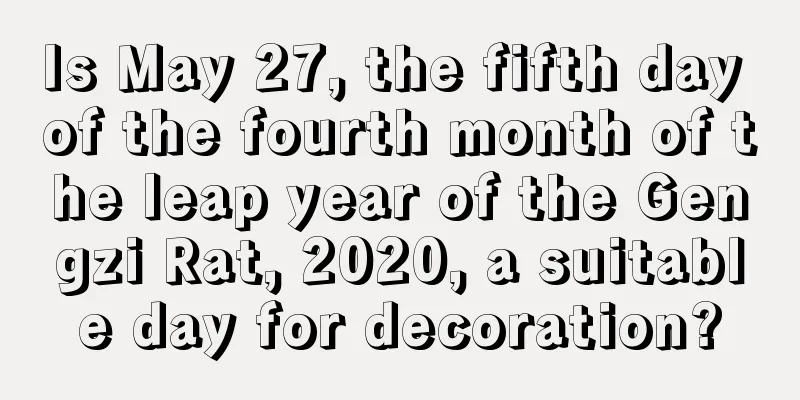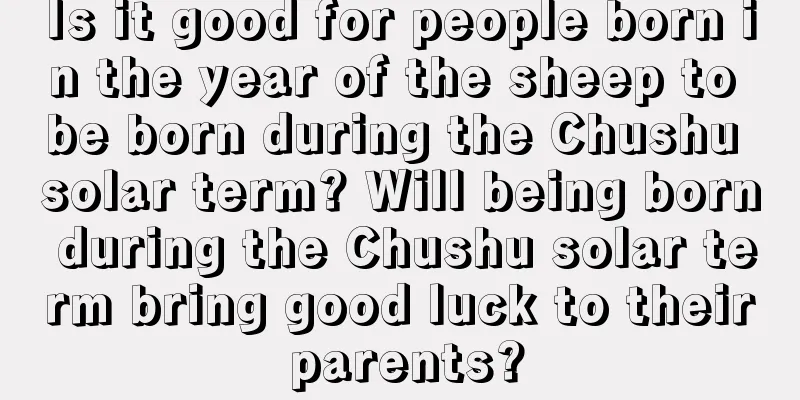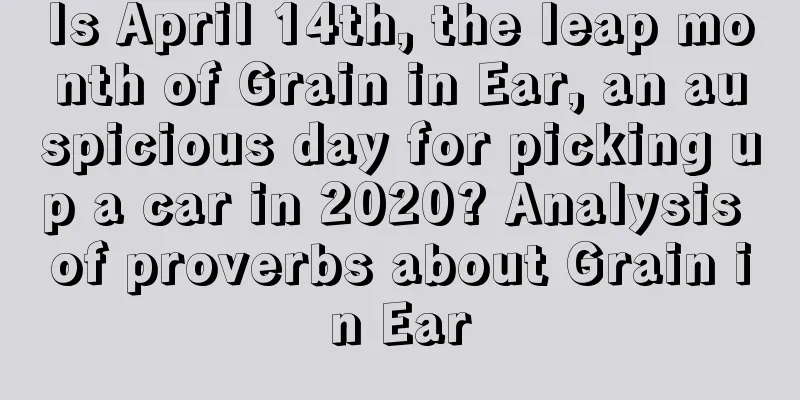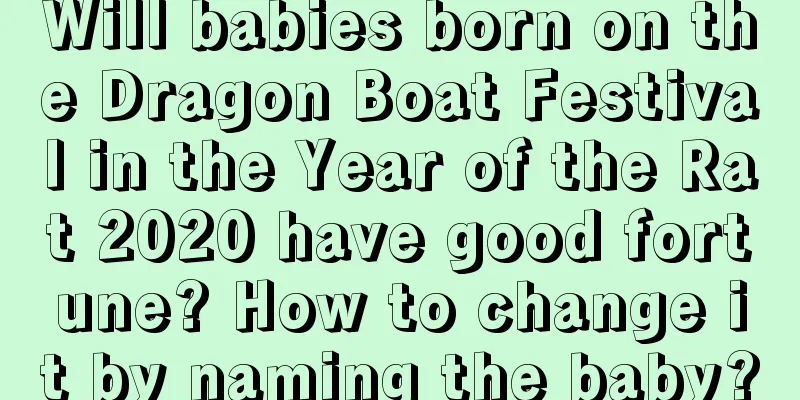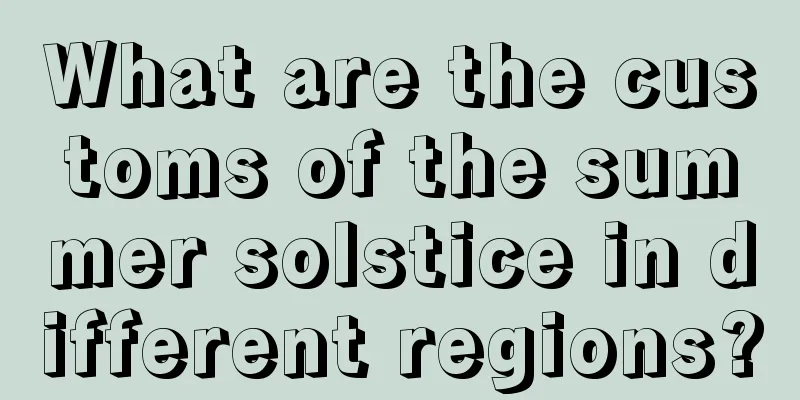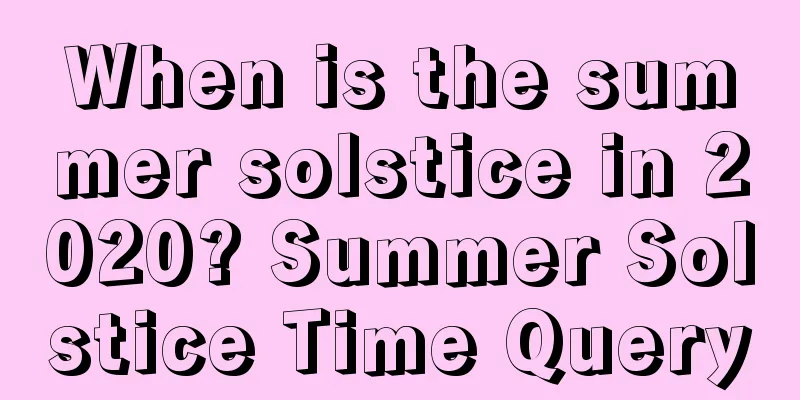Why do we eat cold food during Qingming Festival? Analysis of the origin of eating cold food during Qingming Festival!
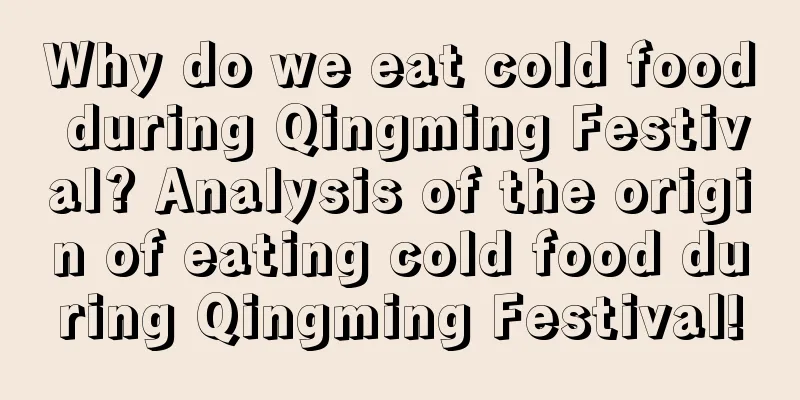
Eating cold food is one of the traditional customs of Qingming Festival. In some special places, cold food banquets are even held during Qingming Festival. It can be seen that eating cold food on Qingming Festival has a profound impact on people. So why do we eat cold food on Qingming Festival? For more details about the lunar calendar for February 2018, please visit the Fortune Teller website for consultation!Why do we eat cold food during Qingming Festival?Qingming was originally one of the 24 solar terms in the Chinese calendar. It appears roughly 15 days after the vernal equinox, which is around April 5th of each year in the Gregorian calendar and in March in the lunar calendar. At this time, it is the late spring season when spring is as deep as the sea. There is green grass everywhere, swallows are singing, and all things are full of strong vitality. The weather is clear and the air is clean, so it is called Qingming. Qingming Festival, also known as the Outing Festival, the Smart Festival, the No-Smoking Festival, etc., is a traditional festival that has gradually formed as people hold various celebratory activities on this day.In ancient times, Qingming existed only as a solar term and did not become an independent festival. However, there is a Cold Food Festival that has been popular among the people one day (or two days) before Qingming Festival. At that time, the main activities of the Cold Food Festival included banning fire, eating cold food and sweeping tombs to worship ancestors. According to legend, the ban on fire and cold food during the Cold Food Festival was related to Jie Zitui. Jie Zitui lived during the Spring and Autumn Period when Duke Wen of Jin was in power. When Duke Wen of Jin fled as a prince, he followed him as a close minister. Once, when passing through Wei State, the prince had no food to eat, so Jie Zitui resolutely cut off his own flesh and fed it to the king. After going through many hardships, the prince returned to Jin and succeeded to the throne as Duke Wen of Jin. He bestowed gifts on all his ministers and the whole court celebrated. Jie Zitui did not express his contribution and therefore did not receive any reward. So he lived in seclusion in the mountains and vowed never to get involved in state affairs again. When Duke Wen heard the news, he was very regretful and sent people to search for Jie Zitui everywhere in the mountain, but they couldn't find him. So he decided to set fire to the mountain to force Jie Zitui to come out of the mountain by himself. Unexpectedly, Jie Zitui did not come out. Instead, he was burned to death by the raging wildfire. Duke Wen was very sad, so he ordered the day of burning the mountain to be designated as Cold Food Festival, and the people were required to abstain from burning fire and eat cold food in memory of Jie Zitui. In fact, according to scholars' research, the custom of banning fire and eating cold food originated from the custom of banning fire and releasing fire in the Zhou Dynasty. The custom of tomb sweeping originated from the ancient custom of worshipping Gaojin (m6i, pronounced as mei). Because the Cold Food Festival is very close to Qingming Festival, over time, the two merged and the Cold Food Festival was eventually included in Qingming Festival. Therefore, the agricultural solar term of Qingming became the Qingming Festival in later generations. In addition, the custom of banning fire and eating cold food during the Qingming Festival has been passed down since the Tang and Song dynasties. It is said that the fire ban at that time began on Cold Food Day, and it was not until Qingming Festival that the fire kept in the palace was ignited and then passed to ordinary people's homes, which was called new fire. This custom is repeatedly reflected in Tang and Song poetry. Typical lines include "Candles were passed around the Han Palace at dusk, and light smoke drifted into the homes of the five marquises" and "Yesterday my neighbor begged for a new fire, and it was shared with the reading lamp at dawn." These poems vividly describe the scene of passing on new fire on Qingming Festival. Because there is no fire, cold food is a natural thing. In the poem "Cold Food in the Mountains" by Lin Hejing, a hermit in the Southern Song Dynasty, there is a line that goes "A guest has just tasted the cold food for the first time." Among them, "Hanju" is a kind of cold food fried in oil. Even those who live in seclusion in the mountains cannot escape the worldly influence, which shows how widespread its popularity is. Furthermore, during the Qingming Festival, the weather is nice and the weather is sunny and windy. People who have been cooped up in the house for a whole winter can go outside, enjoy the spring scenery, and breathe in the air. Along the River During the Qingming Festival, a masterpiece by Zhang Zeduan, a talented painter of the Song Dynasty, depicts the carefree scene of people returning from visiting graves and outing during the Qingming Festival with grand and delicate strokes. |
Recommend
Why don’t you go out during the winter solstice? Is it not advisable to travel far during the winter solstice?
The Winter Solstice is also a traditional festival...
What should not be done the day before the beginning of autumn in 2020? When will autumn begin in 2020?
Introduction: The day before the Beginning of Autu...
Will the Civil Affairs Bureau be open on the second day of the second lunar month in 2020? Can’t we eat noodles on the second day of the second lunar month?
Introduction: When getting a certificate, you need...
Is the third day of June 2022, the Party Founding Day, an auspicious day? Is it suitable for decoration?
The sixth month of the lunar calendar is the last ...
Why is there no holiday for the Lantern Festival? Isn’t the Lantern Festival a legal holiday?
Having a holiday has always been a popular thing i...
What is the fate of a girl born on the third day of the eleventh lunar month in 2020?
People born on different days have different desti...
Can I open my business on October 28th of the lunar calendar in 2021? Is it good to open the business?
There are certain considerations and rules for cho...
Is September 18, 2021, a good day for the Frost Descent solar term? Is it an auspicious day?
September is known as late autumn, late autumn, qu...
Is there a legal holiday for Mid-Autumn Festival? Is it appropriate to repair graves on the Mid-Autumn Festival on August 15, 2020?
Introduction: It’s Mid-Autumn Festival again in a ...
Is the Autumnal Equinox on August 6, 2020 a good day? What does the Autumnal Equinox mean?
Introduction: The days of the Autumnal Equinox can...
Why do we eat eggs during the summer solstice? Introduction to the characteristics of summer solstice climate
The Summer Solstice is one of the 24 solar terms, ...
Is it okay to have a baby born on the first day of the eleventh lunar month in 2021? Is it suitable for a caesarean section?
The eleventh month of the lunar calendar belongs t...
What day is the fifth day of the eleventh lunar month in 2018? What month and date is it?
Shuimoxiansheng.com has carefully compiled detail...
Is April Fools’ Day, the ninth day of the third lunar month in the Year of the Rat 2020, suitable for worshiping ancestors?
Is April Fools’ Day, the ninth day of the third lu...
Who are the great men and celebrities who were born on the Ghost Festival on the 15th day of the seventh lunar month? What is the fate of people born on the Ghost Festival?
The Zhongyuan Festival is also known as the Ghost ...

